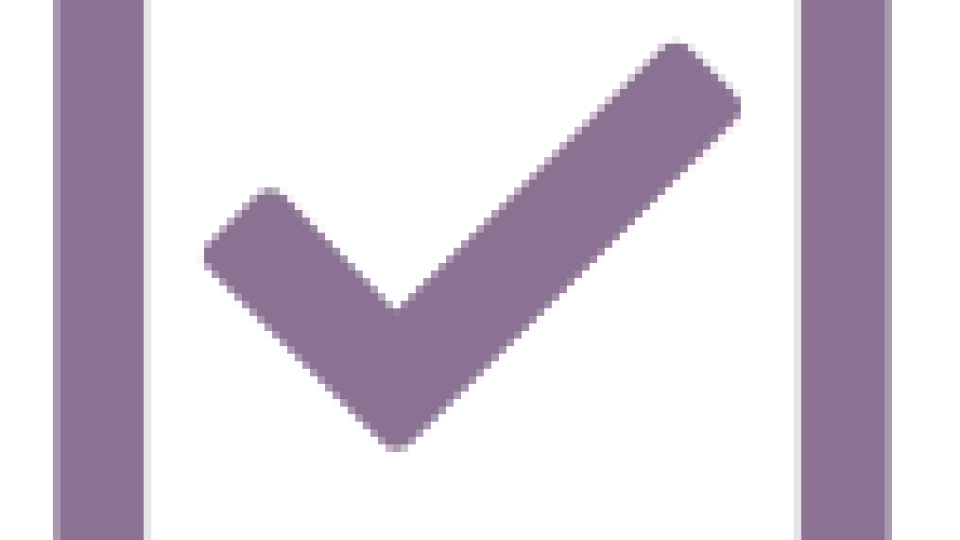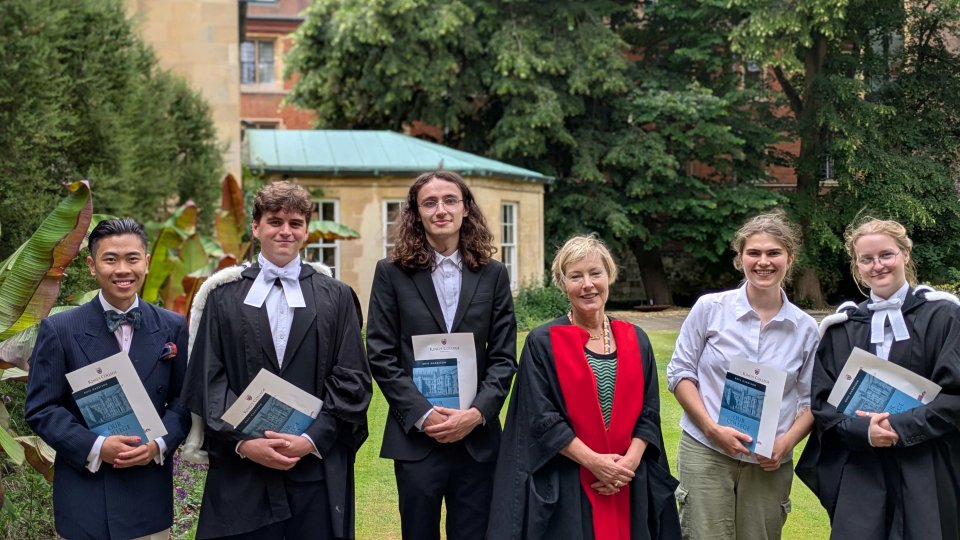For prospective students
Before you read the tips below, we advise you to read the Music subject page thoroughly.
For offer holders
Here are some general suggestions intended to ease the transition from school to University, followed by specific information relating to preparation for the first year.
Most first-year undergraduates reading Music at Cambridge find the course stimulating and challenging. Perhaps one of the most difficult hurdles you will face will be getting used to the idea of thinking about music; that is, you need to take very seriously the idea of music as a subject of intellectual enquiry, as well as being something you ‘do’ or ‘make’.
Among other things, this means becoming familiar with musical repertories other than those related to your principal instrument(s). Getting to know as much music as possible should be one of your primary concerns, both before and during (and after!) your time at Cambridge; none of us knows enough music. One of the easiest, most inexpensive ways to do this is by listening to the radio, or downloading a free music streaming programme such as Spotify.
Once here, you will be able to use the resources available in the College and Faculty libraries, but there is no substitute for building up your own personal library of books and study scores, so that you have them to hand as and when you need them. Music and music books are expensive, but bear in mind that they can be put to multiple uses: a Dover volume of Mozart or Haydn string quartets, for example, will help you with work in harmony and counterpoint, analysis, and history, as well as providing excellent material for score-reading practice.
Another vital skill for all your studies is the ability to ‘hear’ a score—including one that you are writing—in your head, without the intermediary of an instrument or recording. Conversely, you need to be able to ‘visualise’ to some extent the score of a piece to which you are listening. Most students find these skills difficult, and it is not easy to suggest fail-safe methods of acquiring them; nonetheless, they are probably key to your enjoyment of your studies at Cambridge, and you are encouraged to work at them.
If you cannot buy music and books locally, you can order them on the internet (e.g. from Amazon; for second-hand or out-of-print books and music, try Abebooks); or from Brian Jordan, 10 Green Street, Cambridge, CB2 3JU. Waterstones at 82 Gower Street, London WC1E 6EQ also has a good second-hand music books section. It’s always worth keeping an eye on your local Oxfam shop, where second-hand scores are to be found surprisingly often (Cambridge and Oxford have particularly good Oxfam Book Shops). Books and scores are also to be found on the regular Tuesday and Thursday stalls at the Cambridge Market.
You will probably have your own audio resources to bring with you to Cambridge. It's well worth making sure that you have access to good reception of BBC Radio 3 and Classic FM; this will prove both useful and enjoyable.
Preparation for first year courses
The following notes are essentially identical to those found in the ‘Preparatory Reading List’ issued by the Faculty of Music to incoming first-year undergraduates, though they also incorporate some additional material.
Analysis
A good general introduction to the subject is Nicholas Cook: A Guide to Musical Analysis (Oxford, 1994). During your first year you will be required to study in detail Book 1 of Bach's Das wohltemperirte Clavier (The well-tempered Clavier), ed. Richard Jones (ABRSM, 1994); you will need to purchase your own copy of this edition. Dover scores of string quartets and symphonies by Haydn, Mozart, and Beethoven are useful and fairly inexpensive. You should get to know several quartets and symphonies by all three composers. Follow the score as you listen, and concentrate carefully. Play through (it doesn’t matter how well or badly) piano sonatas by the same composers.
An excellent study of late eighteenth-century music, available in an inexpensive paperback edition, is William E. Caplin, Classical Form: A Theory of Formal Functions for the Instrumental Music of Haydn, Mozart, and Beethoven (Oxford: OUP, 1998); this will be invaluable not only for your Analysis studies but also for your understanding of classical-period harmony. A useful primer is Edward Aldwell and Carl Schachter, Harmony and Voice Leading, 3rd edition (Wadsworth Publishing Co., 2002).
Harmony and Counterpoint
Before you come to Cambridge, please play and study the following:
-
The chorale harmonisations of J. S. Bach.
Recommended edition: Breitkopf and Härtel, ed. B. F. Richter; less good but adequate: Chappell, ed. Albert Riemenschneider -
Schubert Lieder.
Recommended edition: Dover (either Schubert’s Songs to Texts by Goethe or Complete Song Cycles). The Lieder of Beethoven, Mendelssohn, and Schumann are also recommended for your attention -
Renaissance polyphony.
Listen to some of the many fine recordings of the music of Palestrina and his contemporaries (the Gimell and Hyperion labels are a rich source).
Many of the relevant scores are also available to download for free from the IMSLP website.
History
As a general introduction to the entire field, read Nicholas Cook, Music: A Very Short Introduction (Oxford: OUP, 2000). More specifically, you should familiarise yourself with at least one of Mozart's Da Ponte operas; with instrumental and vocal music of the nineteenth century; and with some music of the twentieth century. You will benefit from casting an eye over parts of Richard Taruskin, A History of Western Music (Oxford: OUP, 2004), both for its sections on opera, and for its extensive coverage of twentieth-century music. You can broaden your appreciation of historical and cultural approaches to music through reading Philip Bohlman: World Music: A Very Short Introduction (Oxford: OUP, 2002), and The Cultural Study of Music: A critical introduction, ed. Martin Clayton, Trevor Herbert, and Richard Middleton (2nd edition, London: Routledge, 2012).
At Cambridge, you will become familiar with reading articles in leading musicological journals; new research is continually being disseminated in this format. Many journals and other important research sources such as Grove's Dictionary are now available in electronic format, and you will have free online access to these once you are here.
Keyboard Skills
A piano technique roughly equivalent to Associated Board Grade VI will be helpful. Useful texts include Continuo playing according to Handel, ed. David Ledbetter (Clarendon Press, 1990), and R. O. Morris and Howard Ferguson: Preparatory Exercises in Score Reading (Oxford: OUP, 1931).
For more information, please consult the Music Faculty website, which includes a page for successful applicants and details of first year courses, second year courses, and third year courses. Please see the links below.



